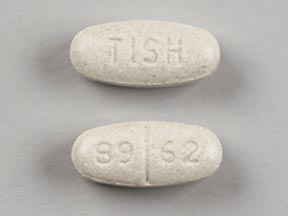Polycarbophil Interactions
There are 33 drugs known to interact with polycarbophil, along with 5 disease interactions, and 1 alcohol/food interaction. Of the total drug interactions, 7 are moderate, and 26 are minor.
- View all 33 medications that may interact with polycarbophil
- View polycarbophil alcohol/food interactions (1)
- View polycarbophil disease interactions (5)
Most frequently checked interactions
View interaction reports for polycarbophil and the medicines listed below.
- Abilify (aripiprazole)
- Adderall (amphetamine / dextroamphetamine)
- Aspirin Low Strength (aspirin)
- Ativan (lorazepam)
- Augmentin (amoxicillin / clavulanate)
- Benadryl (diphenhydramine)
- Calcium 600 D (calcium / vitamin d)
- Citrucel (methylcellulose)
- Claritin (loratadine)
- Colace (docusate)
- CoQ10 (ubiquinone)
- Eliquis (apixaban)
- Fish Oil (omega-3 polyunsaturated fatty acids)
- Flonase (fluticasone nasal)
- Ginger Root (ginger)
- Lexapro (escitalopram)
- Lipitor (atorvastatin)
- Lortab (acetaminophen / hydrocodone)
- Metamucil (psyllium)
- Metoprolol Tartrate (metoprolol)
- MiraLAX (polyethylene glycol 3350)
- Norco (acetaminophen / hydrocodone)
- ProAir HFA (albuterol)
- Probiotic Formula (bifidobacterium infantis / lactobacillus acidophilus)
- Spiriva (tiotropium)
- Tylenol (acetaminophen)
- Vitamin B12 (cyanocobalamin)
- Vitamin C (ascorbic acid)
- Vitamin D3 (cholecalciferol)
- Wellbutrin XL (bupropion)
Polycarbophil alcohol/food interactions
There is 1 alcohol/food interaction with polycarbophil.
Polycarbophil disease interactions
There are 5 disease interactions with polycarbophil which include:
- intestinal obstruction
- inflammatory bowel disease
- intestinal obstruction disorders
- renal dysfunction
- hypercalcemia
More about polycarbophil
- polycarbophil consumer information
- Compare alternatives
- Pricing & coupons
- Reviews (4)
- Drug images
- Side effects
- Drug class: laxatives
- Breastfeeding
Related treatment guides
Drug Interaction Classification
| Highly clinically significant. Avoid combinations; the risk of the interaction outweighs the benefit. | |
| Moderately clinically significant. Usually avoid combinations; use it only under special circumstances. | |
| Minimally clinically significant. Minimize risk; assess risk and consider an alternative drug, take steps to circumvent the interaction risk and/or institute a monitoring plan. | |
| No interaction information available. |
Further information
Always consult your healthcare provider to ensure the information displayed on this page applies to your personal circumstances.


